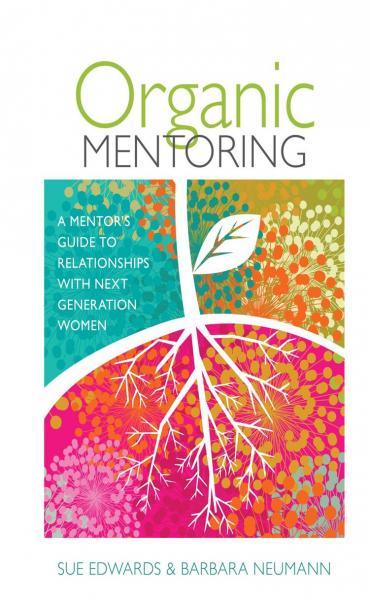
How to sabotage mentoring by being a “good role model”
When I say I struggled to get up this week, struggled to open my Bible, I want her to say, “You know what, sometimes I do too.” I don’t want a perfect woman who always says, “Well, you should have done this.” I want someone completely transparent who can say, “I didn’t either—life is messed up, I didn’t either.”
Tara, age 24
To successfully mentor the next generation, a mentor must take off her "good role model" mask and admit her failures–not just "generally"(Yes, I messed up in the past)–but specifically. We are not talking about full disclosure with all your dirty laundry hanging out. We’re talking about humility that allows us to admit we are not perfect. This requirement will challenge some of us to the core of our being. Just as younger women were raised in the self-esteem movement, older women were raised in the “Be a Good Role Model” movement and transparency just feels wrong. Our background leads us to believe our mistakes will lessen our influence or affect someone negatively.
Craig Groeschel, pastor and author of Alter Ego: Becoming Who God Says You Are, addresses our bent: “I was trained in seminary not to be transparent. They called it ‘guarding the pastor’s mystique.’ That was one of the most dangerous teachings that the older generation passed along. It was wrong. If you are not being transparent, you are not going to reach this generation. You have to be authentic.” The idea of a mystique may appeal to us, but it won’t get us anywhere with younger people. “When I meet with a mentor,” revealed a postmodern woman, “I think, ‘Okay, is this mentor going to let her guard down and let me see the real person?’” She wants a real person, not a mystique.
The Apostle Paul, one of the most respected men in Christianity, was quick to admit his deficiencies. The church in Rome heard about his battle with coveting (Rom. 7: 7, 8). He told believers in Corinth that when he arrived in their city he was weak, fearful, and trembling (1 Cor. 2: 1-3). When he reached Macedonia he acknowledged outward conflict and inward fear (2 Cor. 7: 5). While encouraging his mentee Timothy, he mentioned his sinful past as a blasphemer, persecutor, and violent aggressor. In perhaps his most vulnerable moment, he described a painful condition he was not able to overcome (2 Cor. 12: 1-10). Paul saw himself as a fellow struggler and one who needed Christ’s mercy the most (1 Tim. 1: 13-16).
Transparency is often difficult for Christians. We rightfully expect each other to live up to God’s standards. But sadly, our failures can bring rejection, which tempts us to hide our deficiencies, problems, and pain. One frustrated older woman described the situation this way:
I think there is a huge lack of transparency in the church. We can’t be real. I found my best Titus 2 ministry began when my eldest child flaked out on us and became a prodigal. Instead of hiding it, I decided I would be transparent about our struggles. Women flocked to me because, as painful as it was, I chose to be real. If we are all perfect mothers, perfect lovers, and perfect churchgoers we create a big fallacy where we leave no room for the Holy Spirit to work, and we operate by a system that only appears biblical. I think the younger generation sees the holes in this, calls it bunk, and does their own thing. And I can’t blame them.
Dealing with our sin is part of the spiritual growth process. Most of us are willing to admit we sin. But, it’s hard for some of us to admit exactly how we fail—to talk about particulars. When we guard our “mentor’s mystique,” hide specific faults, and disclose only positive characteristics, young people find it difficult to relate to us. Remember, these are “keep it real” people.
When we admit we don’t have it all together, we simply agree with what the Bible teaches: we are all fallen people who desperately need God’s grace and redemptive power. Author Carol Brazo describes how God uses transparency:
None of us is whole. None of us reached adulthood without broken places in our lives. We live in a fallen world and all of us yearn for the wholeness we were created to reflect. It is a gift of enormous measure to share our brokenness with others. Sharing allows others to see areas in which God is at work. It allows them into the Healer’s office to watch the miracle begin. And it reassures us the miracle we seek can be found at his feet.
Instead of losing credibility, you gain stronger standing when you share honestly about your life. Let young people see your problems and how you work with the Spirit to overcome them. Let them see how God forgives sin, and how the everyday process of redemption and restoration takes place. Give them hope for recovery from their own mistakes. Allow them to see how God uses your experiences to strengthen and conform you to the image of Christ. Your faith experiences are a window through which they can see the work of God and biblical truths become more than ideas; they take on skin.
When we speak honestly about our imperfections, insecurities, and frustrations we create a comfortable place where our mentee can do the same. Weary of living in a culture that values achievement and success, many Postmoderns long for a relationship where they can relax and be honest.
You will determine the level of transparency in the relationship. In response to one of my other blog posts on mentoring, one woman commented:
I’ve spent years looking for a mentor-type Christian woman and this is where I get stuck. I can’t imagine a more experienced woman who wouldn’t judge me for the sin struggles I have, because I can’t imagine any of these women really sinning. When we pray for each other we pray for health, jobs, and safe travels. No one asks for prayer for recovery from a past abortion or affair. And, I think to bring about change it’s going to take our leaders raising the bar.
More and more we hear from young people who are desperate for real help. If you guard your mentor mystique, shallowness will characterize the relationship and the young person is likely to exit. Appropriate disclosure of your thoughts, feelings, and actions during difficult times enriches the relationship and creates a substantial experience for the mentee. Are you willing to take off your mask? It might save a younger woman from drowning in the undercurrents of a dangerous culture.


